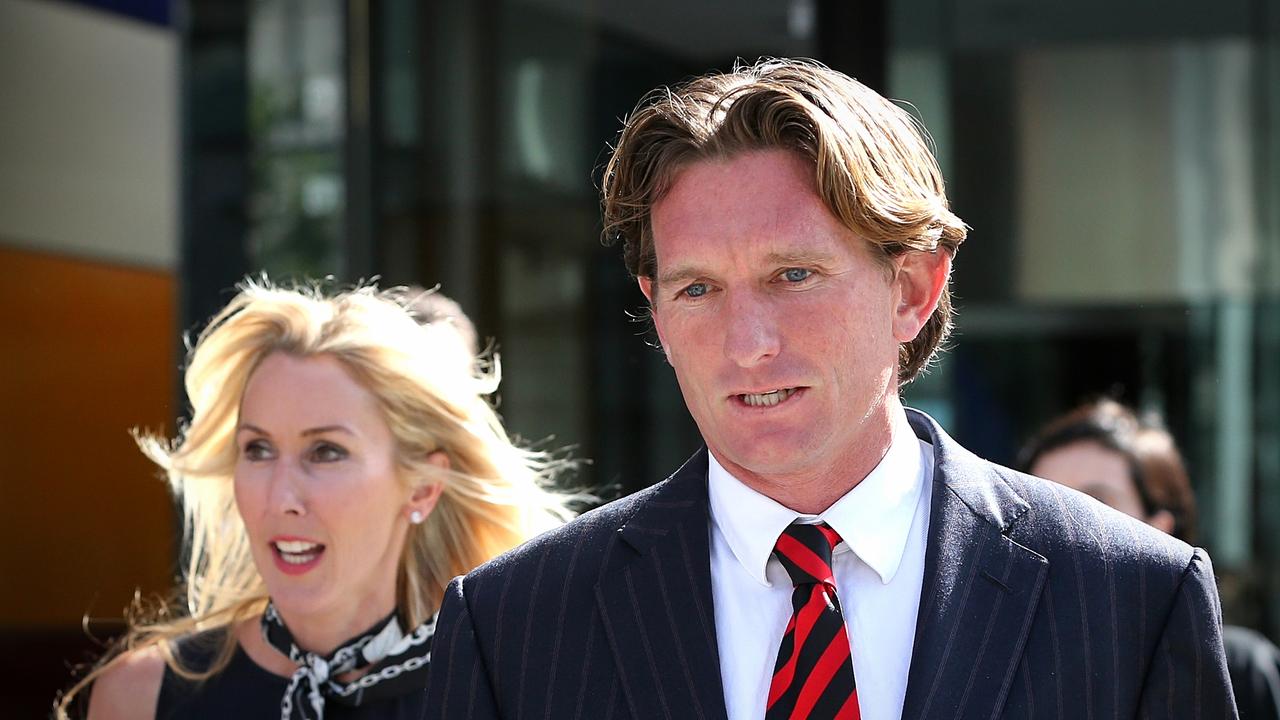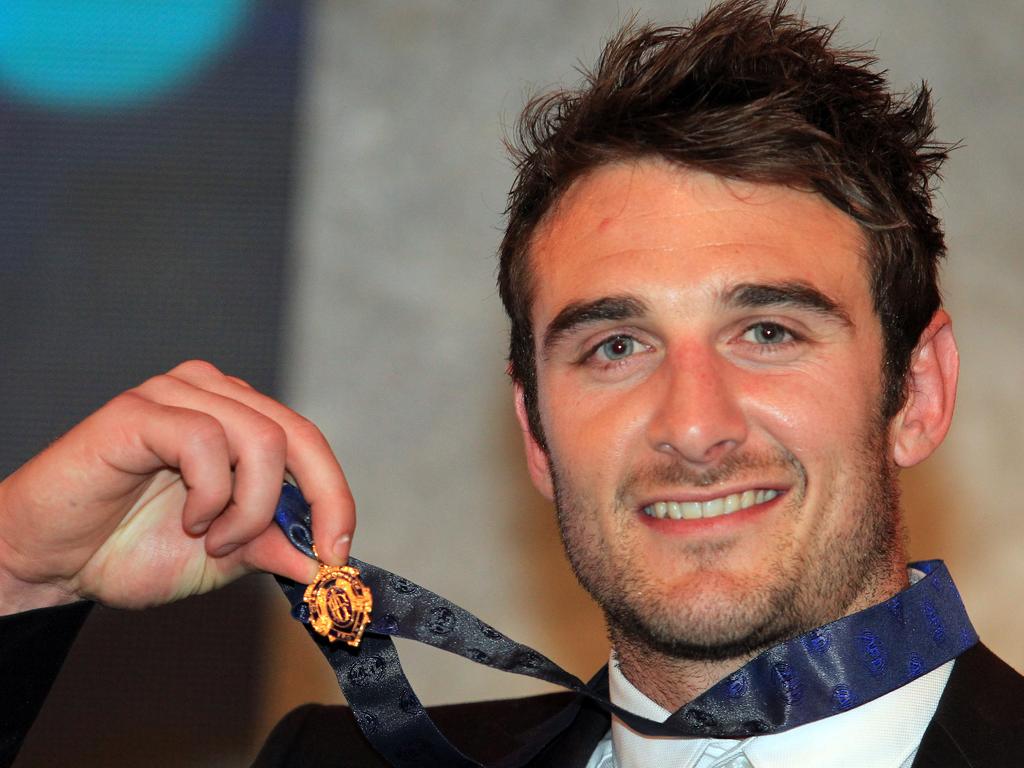New twist in Essendon drugs saga after bombshell Herald Sun report
ASADA has strongly denied evidence published in The Herald Sun that has raised suspicion Essendon was the victim of an ASADA “stitch-up”.

The drug administered to Essendon players that led to their suspension in 2016 was only listed as a banned substance several months after the injections were stopped, the Herald Sun reports.
A total of 34 Bombers players were banned for 12 months after a Court of Arbitration for Sport ruled the players were injected several times with the banned substance Thymosin Beta-4.
RELATED: The Herald Sun’s exclusive report
But the drug was only deemed to be logged as prohibitive on February 4, 2013 — months after the club had stopped injecting the players.
The Herald Sun exclusively obtained the information under Freedom of Information laws.
“An ASADA official ran a check on the public site for ‘research’ at 10.34am and no flag was generated for Thymosin Beta-4,” the newspaper report said.
“Another check on Thymosin Beta-4 just over two hours later at 12.59pm by an ASADA staffer listed it as ‘banned in sport’.
“The status update came on the same day AFL boss Andrew Demetriou called Essendon chairman David Evans about a secret investigation into the club’s supplements program, prompting the Bombers to ‘self-report’ to ASADA.”
Scientist Bob O’Dea said: “The evidence of a stitch-up is compelling”.
However, ASADA responded to the claims in a lengthy statement on Wednesday, declaring substance Thymosin Beta 4 has always been banned under the WADA code and has never been approved for human consumption.
The ASADA statement claimed it is irrelevant whether Thymosin Beta 4 appeared on the public “Check Your Substances” online search tool or not because it has always featured on the WADA list of prohibited substances and was included in WADA’s 2010 Prohibited List of substances.
The ASADA statement claims it is not possible for its public “Check your Substances” search tool to include every possible substance banned under the WADA code.
“ASADA strongly denies allegations of evidence manipulation reported in the media,” the statement claimed.
“The World Anti-Doping Agency (WADA) has sole responsibility for setting and determining prohibited substances. It is not possible to manipulate whether or not substances are prohibited.”
The statement also claims any athlete searching for Thymosin Beta 4 between 2011 and 2013 on the public ASADA search tool would have received a warning message to contact ASADA to check if it is banned, despite it not showing up on the online search.
“IMPORTANT: If you cannot find your search term on ‘Check Your Substances’ that does NOT mean that it is permitted in sport,” the ASADA warning read.
“Please check the list below for an exact match to your search term. If you cannot find an exact match for your search, please contact ASADA immediately”.
ASADA says the conduct of its staff and the accuracy of its investigations have been “vindicated” time and again.

The ASADA statement comes after the defence team for the 34 Essendon players reportedly did not know the timing of the logging of the ban when they were found guilty in January 2016, the publication added.
Questions have also been raised about the update’s timing, with suggestions it was an attempt by some staff to shore up evidence after the fact.
The revelations have drawn a mixed reaction. Former Adelaide Crows coach Graham Cornes, who was a vocal supporter of the Essendon players during the saga, tweeted: “The Essendon 34 must be vindicated, Jobe’s Brownlow restored and justice maintained. Investigate this now.”
1) Give Jobe Watson his Brownlow Medal back.
— Dan (@DanClarkSports) October 15, 2019
2) Essendon FC should sue for millions in damages.
3) The suspended 34 players should all sue for hundreds of thousands in lost income.
4) The AFL and ASADA should finally admit their massive failings.
Former ASADA CEO Richard Ings, who led the organisation from 2005-10, said the findings didn’t change anything because Thymosin Beta-4 was on the World Anti-Doping Authority’s banned list in 2010.
Ings said none of the new evidence impacted the decision reached by the Court of Arbitration for Sport.
“WADA determine what’s banned. Not ASADA,” he tweeted. “And no one argues successfully that TB-4 is not banned. EFC34 were well represented at both hearing. They lost.”



